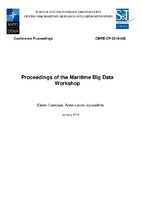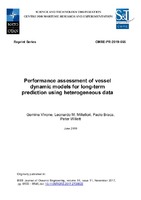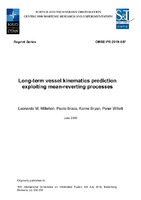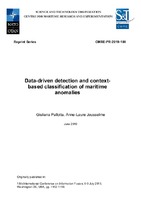| dc.description.abstract | The NATO STO Centre for Maritime Research and Experimentation, as part of its mission to put forward
the technological maritime research, with the support of the European Union’s Horizon 2020 Programme
has organized on May 9-10, 2018, the Maritime Big Data Workshop (MBDW). The workshop gathered
together researchers, technological providers and members of the operational community to exchange their
experience on Big Data innovations for maritime security, safety and security of maritime navigation and
transport, sustainable fisheries and exploitation of ocean resources. For two days, 37 researchers and
experts from Brazil, Canada, France, Germany, Greece, Italy, Portugal, South Africa, and Vietnam
presented their work and main findings on Maritime and Big Data, including the outcomes of 6 ongoing
Maritime Big Data projects and initiatives funded by the European Union: datAcron, MARISA, Ranger,
EUCISE, AtlantOS, EMODnet.
The workshop’s results enable to draw some preliminary conclusions on the current research and
developments in Maritime Big Data. There is a general interest towards concrete societal and operational
needs, coupled with an emerging tendency to develop methods combining heterogeneous, potentially
complementary, information streams (mainly AIS, paired with SAR, Radar, METOC, acoustic), with an
increasing attention towards source quality. The approaches adopted come from different areas of research,
mainly machine learning and data mining, incorporating also techniques developed in Information and
data fusion, but also data warehouse and online analytical processing.
The current trend towards experimenting open source Big Data technologies is challenged by the
integration of diversified sources of information, which comes with an increased exigence of enhanced
data management capabilities for harmonised data sharing and processing that can overcome the sole
exploitation of kinematic data. Meanwhile, there is a prevailing requirement to reduce the uncertainty of
detection and prediction results, entailing the development of capabilities to formally handle information
and source quality. Analogously, the emergence of novel Artificial Intelligence approaches that, despite
showing promising results, challenge results’ interpretation, requires an increased involvement of experts
in all the phases of the development (the so-called ``Human in the loop”), and the holistic incorporation of
approaches addressing human factors’ aspects. | en_US |



